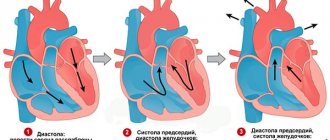Symptoms of lack of sleep
It is believed that common symptoms of “chronic sleep deprivation” are absent-mindedness, drowsiness, unreasonable irritability and fatigue. This is not a complete list of the causes of specific symptoms.
The main signs of lack of sleep are presented in the table:
| Symptom | Description |
| Reduced performance | When performing assigned tasks, a person experiences serious difficulties. If he is engaged in intellectual work, then it becomes difficult for him to understand what exactly is required of him. A person notices that more time is spent on a specific task than before. He is constantly distracted and has difficulty collecting his thoughts. |
| Frequent colds | Due to constant lack of sleep, the immune system is weakened. The body becomes defenseless against infections. A person can get sick “out of the blue” - after a glass of ice cream, or after 1 sip of cool mineral water in the heat. |
| Memory problems | The brain is somewhat similar to a computer device. When a person sleeps, his personal “computer” goes through a “restart” process. Unnecessary information is erased, new data is recorded. The body also processes the information received during the day (usually this is expressed in bizarre and not so bizarre dreams). When sleep is disturbed, these processes are absent. As a result, the person becomes distracted and forgetful. |
| Weight gain | Extra pounds appear as if out of nowhere. The reason is an increase in the concentration of the stress hormone cortisol. The second reason is a malfunction in the diet, when a person who does not experience the pangs of hunger during the day awakens a “brutal” appetite at night. |
| Susceptibility to stress | Constant lack of sleep leads to wear and tear of the nervous system. The person becomes capricious, hot-tempered, irritable. In the worst case, neuroses develop. |
Symptoms of sleep deprivation
Modesty makes a man, scars make a man... Lack of sleep is clearly not one of the factors that will make you more attractive in the eyes of others and your own - except that it will cause pity.
A collective image of a person suffering from sleep deprivation symptoms:
- severe drowsiness,
- red tired eyes,
- "bruises" under the eyes,
- pallor,
- headache,
- nausea,
- general poor health,
- high blood pressure (especially if a person has hypertension or vegetative-vascular dystonia),
- dizziness,
- inability to think quickly and work fully,
- depression, irritability,
- sometimes – increased body temperature,
- in some cases – toothache, discomfort from the internal organs.
This condition is very unpleasant and even painful. Signs of sleep deprivation resemble those of a recent flu.
Feeling the approach of the flu, any person will immediately call the doctor and stay at home instead of going somewhere. But when such symptoms occur due to lack of sleep, most people treat them as normal. Waking up, people with effort overcome the unimaginable attraction of a warm pillow and stand up. Then they try to quickly eliminate the consequences of lack of sleep, remove the shadows under the eyes, pour a portion of coffee or another invigorating drink, and go to work or school in a depressed mood...
Sometimes lack of sleep is a rare event in life, but how many people put up with its presence every day! Fatigue and lack of sleep accompany them for weeks, months, years in a row - and they do not try to change anything in their lives.
You cannot die from lack of sleep – at least not if you don’t completely deprive yourself of sleep. But if you don’t sleep enough for a long time, think about what the lack of sleep threatens you in the future...
What are the reasons for lack of sleep?
OCD
distinguishes between internal (diseases) and external causes of sleep problems.
| Cause | Description | Symptoms |
| Stress | Anxious, suspicious, impressionable people who exaggerate the significance of unfavorable events are prone to sleep disturbances. Before going to bed, a person thinks about a real or imaginary problem, punishes himself for not saying something (or, conversely, saying too much). This helps reduce the production of melatonin (sleep hormone) and increase adrenaline synthesis. For this reason, the nervous system becomes overexcited and cannot calm down for a long time. | A long process of falling asleep (more than 30 minutes), fear of not falling asleep until the morning, rapid heartbeat, inability to fall asleep (when a person begins to fall asleep, an internal shock occurs and he wakes up. There may be several such shocks, often they follow one after another). Sometimes the music “turns on” in your head. Sleep is superficial, there are disturbing, nightmare dreams. |
| Nervous and mental disorders | This symptom is observed in people with manic-depressive syndrome, subdepressive and depressive states (protracted cases), obsessive-compulsive disorder. | Severe anxiety before falling asleep, frequent awakenings at night, short sleep (a person wakes up between 3 and 5 o’clock and after that cannot fall asleep. Sometimes during this period there is superficial “drowsy” sleep. Cases of sleep paralysis cannot be excluded). |
| Physiological pathologies | This applies to older people and young children. | Severe snoring, symptoms of hypertension and angina, restless legs syndrome, |
| Jet lag | Doctors advise going to bed before 23:00. If a person goes to bed for a long time, either earlier or later (for example, at 21:00, the next day after 24:00, and then at 22-23:00), his biological rhythm will be disrupted. | – |
Note! 20-30% of people are diagnosed with hypnophobia. This disorder is characterized by a fear of falling asleep. The reason for this is the fear of dying in your sleep. According to some reports, I.V. suffered from this disorder. Stalin.
Failure of internal chimes
The autumn-winter period is a negative background for the development of many diseases, especially cardiovascular diseases. At this time, interruptions in the functioning of the internal biological clock begin, which leads to seasonal depression. Alexander Kalinkin, head of the Center for Sleep Medicine at Moscow State University, told Izvestia about this. M.V. Lomonosov and expert of the European Society of Sleep Research (ESRS). He is a cardiologist by profession, but he has been studying the problems of sleep disorders and helping people get rid of them for 27 years.
Dream
Photo: RIA Novosti/Alexey Malgavko
Scientists have discovered a new danger of lack of sleep
The scientist explained that drowsiness in the autumn-winter period has a specific reason associated with the lack of sun in northern latitudes. Sunlight is the main regulator of the production of the night hormone, melatonin. In the evening, with the onset of darkness, its concentration increases sharply, it gives a signal to all organs to adjust to the night mode of operation. As soon as light hits the retina in the morning, the concentration of melatonin drops sharply to a minimum value.
“Melatonin production occurs in the pineal gland, a small projection in the central part of the brain. The signal about the presence of light to the pineal gland comes through the so-called suprachiasmatic nuclei - these are the central clocks, we call them chimes. But each cell in the body contains its own clock, which operates on completely different dials, somewhere it may be six o'clock, somewhere it may be 12 o'clock, and so on. And even the activity of the genome at night, during sleep, differs from the activity of the genome during wakefulness,” said Kalinkin. When seasonal changes begin in nature, this complex mechanism has to adapt to them.
Lack of sleep may increase risk of gene mutations
Scientists have found that even one night without sleep has a detrimental effect on cell DNA
Psychological consequences
Constant lack of sleep can cause:
- deterioration of short-term memory (against this background it will be difficult to remember even a phone number or the name of a new acquaintance);
- deterioration of long-term memory (it becomes difficult for a person to remember what happened recently or learn something new);
- decreased attention;
- deterioration in planning ability (against this background, coordination of one’s own actions weakens);
- strengthening of bad habits (a person with lack of sleep experiences a “hellish” desire to smoke, drink or eat something filling and high-calorie);
- tendency to rash gambling;
- death of brain cells (up to 26% of brain cells die due to prolonged sleep deprivation);
- development of mania (observed with a very long sleep disturbance, accompanied by hallucinations, delusions, severe anxiety. This condition is very dangerous both for the person himself and for those around him).
Hallucinations
Important! Driving while insufficient sleep is much worse than driving under the influence of alcohol.
There are many cases where a person who fell asleep at the wheel caused a serious accident.
If a person remains insomnia for a very long time, he may develop microsleep. This state refers to sleep for several minutes or seconds. Microsleep can catch a person at absolutely any time of the day. It is not preceded by any symptoms. The danger lies in the fact that a person may not even close his eyes - he does not notice that he has “passed out.” During this time, anything can happen.
Microsleep
Damage that can be easily eliminated
The stronger half of humanity is also susceptible to lack of sleep. And the consequence of this will be a problem associated with a decrease in potency. Studies have confirmed that a lack of rest negatively affects libido with all the ensuing troubles. Refusal of sex, erectile dysfunction, deterioration in the quality and quantity of sperm - all this negatively affects relationships with the opposite sex.
But that's not all! Chronic lack of sleep gives impetus to the development of cancer. Since, due to lack of rest, the body is working at its best, the immune system does not have time to “neutralize” cancer cells. One of them may “slip through” and begin its deadly development...
To prevent this, try to sleep at least 8 hours a night. But do not forget to create optimal conditions for healthy rest. Remember that you need to sleep in a dark, quiet and ventilated area. And know: it’s easy to be healthy, for this you need to lead a correct lifestyle and get a good night’s rest!
We do not always sleep as much as we want - many are faced with such a phenomenon as lack of sleep. It can arise either by our own grace or as a result of external factors.
Sometimes our weaknesses interfere with proper sleep: for example, the attraction to nightclubs and the Internet. Sometimes there are objective circumstances: preparing for exams, shift work, a restless baby. In some cases, a sleep-deprived individual is actually a victim: the lack of sleep is associated with insomnia. But no matter what the reasons are for a person’s lack of sleep, it is very harmful to him.
Are you constantly sleep deprived? So know this: your body is suffering, it feels bad, and by leaving the problem without a solution, you are ruining the future for it and at the same time for yourself. Find out what the dangers of lack of sleep are in this article.
Physiological consequences
Chronic lack of sleep negatively affects your appearance. The skin becomes pale or acquires a characteristic earthiness.
The corners of the mouth droop down, the eyes swell. Severe tremors occur in the arms and legs. Coordination of movements is impaired.
Sleep plays a vital role in the process of skin regeneration. Increased production of cortisol contributes to increased sebum secretion. As a result, the skin ages faster.
The risk group includes young and middle-aged women - from 30 to 50 years. With constant insomnia, skin tissue ages twice as fast. Wrinkles and other defects appear on the face.
If lack of sleep has become chronic, metabolism slows down. This helps lower body temperature. A person complains of cold even in a warm, well-heated room.
Rapid aging
The most dangerous consequences of insomnia are hypertension, diabetes and obesity. The development of these diseases is due to the fact that, against the background of constant insomnia, blood cells lose their shape and do not cope well with the breakdown of sugar.
Another dangerous consequence is metabolic disorders. Leptin and ghrelin are responsible for the feeling of satisfying hunger and appetite, respectively.
With insomnia, the concentration of leptin decreases, and the level of ghrelin increases. Hunger is not satisfied, I want to eat more. Therefore, the weight increases very quickly.
How to avoid sleep problems
The instructions look like this:
- Avoid a hearty dinner. You should eat food 4 hours before bedtime. It is advisable not to eat anything at all after 18:00, but if the body “rebels”, the last meal should be no later than 20:00. This requirement is due to the fact that the digestive tract slows down at night. Therefore, the brain is forced to send signals to the stomach even during legitimate rest times.
- Stop drinking strong tea and coffee for a while. If this is not possible, then it is advisable to drink a tart drink only in the morning, before 08:00: caffeine is eliminated from the body within 12 hours.
- Do not drink alcohol in the evening. Sleep after taking alcohol-containing products is very uneven and superficial. After the alcohol wears off, a person wakes up and cannot fall asleep for a long time.
- Avoid physical activity before bed. The last fitness workout should be 4-5 hours before bedtime. Otherwise, the activated nervous system will not allow you to fall asleep.
- Ventilate the room regularly. If the weather permits, you need to sleep with an open window or vent. If it’s cold outside, then you need to ventilate the bedroom 15-20 minutes before going to bed.
Quitting coffee
Can insomnia cause high blood pressure?
With an increase in blood pressure, the sympathetic division of the ANS is activated. The increased systolic volume of the heart pushes blood pressure upward and promotes activation of the wakefulness center located in the hypothalamus.
Important! This condition is often observed in people with already diagnosed hypertension.
High blood pressure is a signal of a serious malfunction in the functioning of the entire body. This is an imbalance in the work of the higher regulatory centers of the body and the structures controlled by them. There is a disruption in the functioning of the center responsible for falling asleep, which is located in the hypothalamus.










